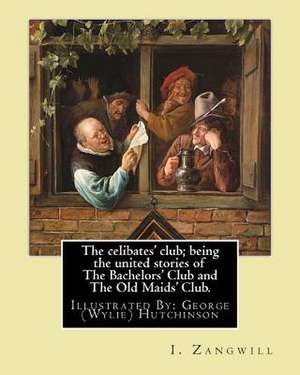The Celibates' Club; Being the United Stories of the Bachelors' Club and the Old Maids' Club.
Autor I. Zangwill, George Hutchinsonen Limba Engleză Paperback
Preț: 140.49 lei
Nou
Puncte Express: 211
Preț estimativ în valută:
26.89€ • 27.71$ • 22.70£
26.89€ • 27.71$ • 22.70£
Carte tipărită la comandă
Livrare economică 03-17 martie
Preluare comenzi: 021 569.72.76
Specificații
ISBN-13: 9781985371651
ISBN-10: 1985371650
Pagini: 342
Dimensiuni: 203 x 254 x 18 mm
Greutate: 0.68 kg
ISBN-10: 1985371650
Pagini: 342
Dimensiuni: 203 x 254 x 18 mm
Greutate: 0.68 kg
